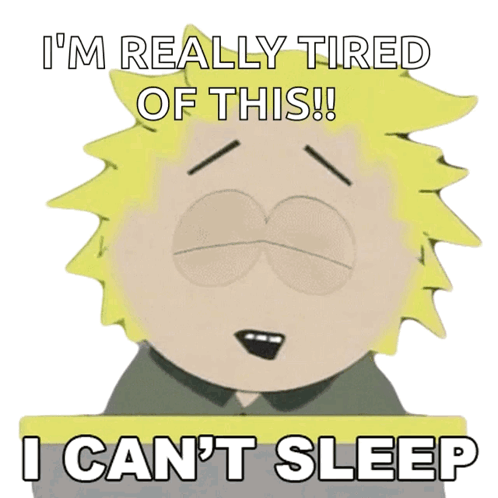Sleep, Physical and Mental Health: Why Insomnia Is More Than Just a Sleeping Problem

Sleep is often called the foundation of health, but for those struggling with insomnia, the lack of quality rest can feel like a never-ending uphill battle. More than just a frustrating inability to sleep, insomnia can ripple through every part of your life—impacting your body, mind, and overall well-being.
In this article, we’ll unpack why insomnia is more than just a nighttime issue and explore how it affects your physical and mental health. More importantly, we’ll offer insights into breaking free from the cycle of sleeplessness.
What Is Insomnia?
Insomnia isn’t just about not being able to sleep. It can look like:
- Struggling to fall asleep.
- Waking up frequently during the night.
- Waking up too early and not being able to go back to sleep.
- Feeling tired despite “sleeping” for hours.
It’s not a one-size-fits-all issue, and the effects often go beyond fatigue. For some, insomnia is a temporary reaction to stress or life changes. For others, it becomes a chronic struggle that persists for months or even years.
Types of Insomnia:
- Acute Insomnia: Short-term and often linked to stress, illness, or major life events.
- Chronic Insomnia: Long-term, occurring at least three nights a week for three months or more.
- Comorbid Insomnia: Associated with other health conditions like depression, anxiety, or chronic pain.
Why Insomnia Is More Than Just a Sleep Problem
1. The Impact on Physical Health
Lack of sleep isn’t just exhausting—it can wreak havoc on your body. When you don’t get enough rest, your body misses out on critical repair and rejuvenation processes that occur during deep sleep stages.
- Heart Health: Studies link insomnia with an increased risk of heart disease and high blood pressure.
- Immune Function: Poor sleep compromises your immune system, making you more susceptible to infections.
- Weight Management: Sleep deprivation disrupts hunger hormones like ghrelin and leptin, often leading to weight gain.
Insomnia doesn’t just drain your energy—it sets the stage for a range of chronic health issues.
2. The Connection to Mental Health
Sleep and mental health are deeply intertwined. Insomnia often coexists with conditions like anxiety, depression, and even PTSD.
- Mood Swings: Lack of sleep can make you irritable, impatient, and emotionally reactive.
- Cognitive Decline: Chronic sleep deprivation affects memory, decision-making, and focus.
- Anxiety Loop: Worry about not sleeping can lead to heightened anxiety, which worsens insomnia—a vicious cycle that’s tough to break.
Research found that improving sleep quality has significant benefits for mental health, often reducing symptoms of depression and anxiety.
3. How Insomnia Affects Daily Life
The effects of insomnia extend beyond the bedroom. It can interfere with your relationships, work performance, and even safety.
- Productivity Drop: Poor sleep leads to decreased concentration and problem-solving abilities.
- Social Strain: Being overtired can make you withdrawn, short-tempered, or emotionally distant.
- Safety Risks: Sleep deprivation increases the likelihood of accidents, especially when driving or operating machinery.
Why We Ignore Insomnia (But Shouldn’t)
It’s easy to dismiss insomnia as “just part of life” or something that will go away on its own. But chronic insomnia is rarely a problem that resolves itself. The longer it’s ignored, the deeper its effects can grow.
Many people also feel ashamed to seek help, worrying that it’s “not a big deal” or fearing they’ll be judged. However, prioritizing your sleep is one of the best things you can do for your physical and mental health.
Breaking Free from the Insomnia Cycle
The good news? Insomnia isn’t unbeatable. By addressing its root causes and making intentional lifestyle changes, you can reclaim your sleep—and your life.
1. Build a Sleep Routine
Creating consistency in your sleep schedule can help reset your body’s internal clock.
- Go to bed and wake up at the same time every day, even on weekends.
- Establish a relaxing bedtime routine, such as reading or meditating.
2. Mind Your Sleep Environment
Your bedroom should be a sleep sanctuary.
- Keep it dark, quiet, and cool.
- Limit screen time at least an hour before bed to reduce blue light exposure.
3. Practice Stress Management
Since stress is a common insomnia trigger, finding ways to unwind is crucial.
- Try mindfulness meditation or deep breathing exercises.
- Journaling can help offload racing thoughts before bed.
4. Evaluate Your Diet
Caffeine, alcohol, and heavy meals close to bedtime can disrupt your sleep.
- Stick to a balanced diet and avoid stimulants in the evening.
5. Seek Professional Help
If insomnia persists, consult a healthcare provider. Cognitive Behavioral Therapy for Insomnia (CBT-I) is a highly effective, evidence-based treatment.
When to Seek Help
If sleepless nights are becoming your norm and affecting your quality of life, it’s time to seek professional support. A psychologist or sleep specialist can help identify underlying causes and develop a tailored treatment plan.
Conclusion
Insomnia isn’t just a sleeping problem—it’s a health problem. It touches every part of your life, from how you think and feel to how your body functions. By taking a proactive approach and addressing both the physical and emotional aspects of insomnia, you can start paving the way toward better sleep and a healthier, more balanced life.
Remember: good sleep is not a luxury—it’s a necessity. And with the right strategies, restful nights are within your reach.